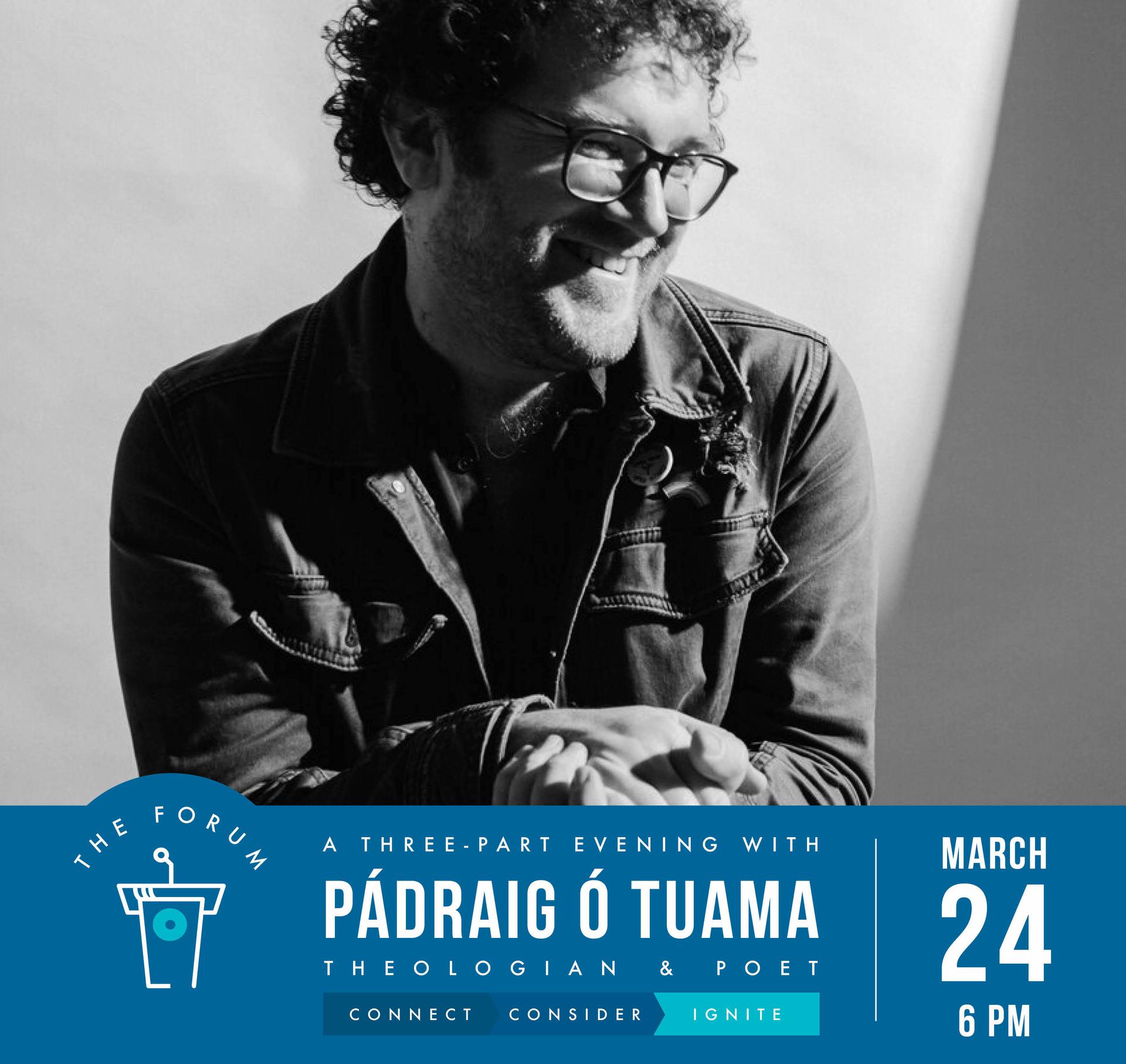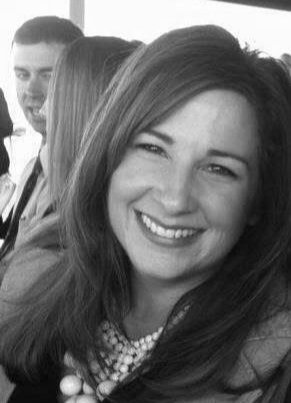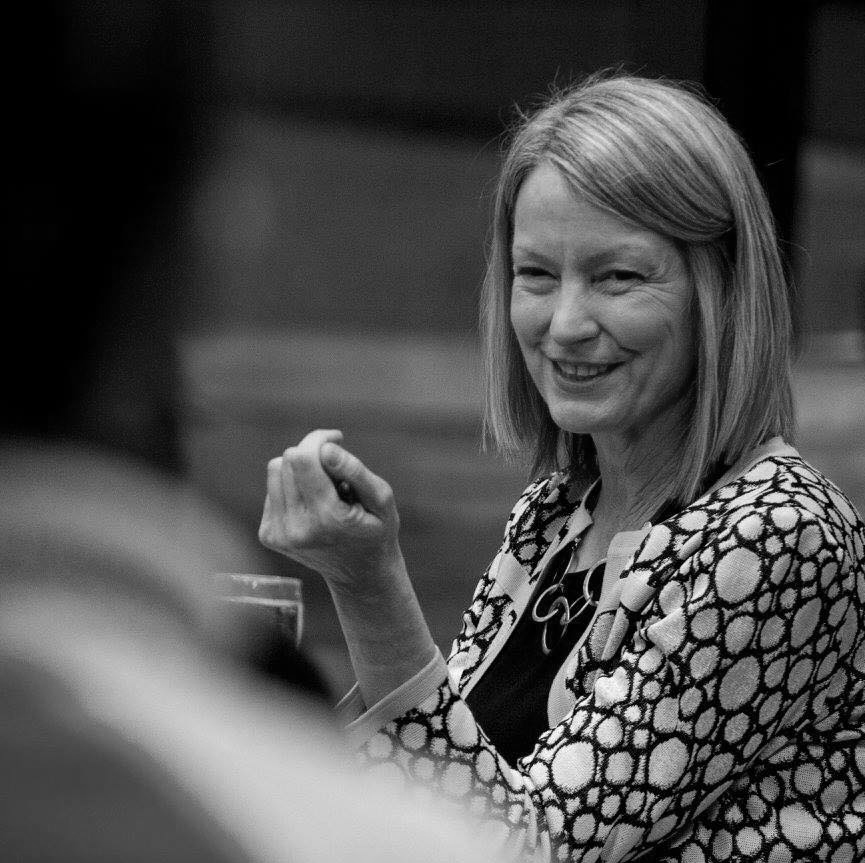The Brief – March
|
MARCH 2021 CONTENT One March For Us All The Forum, featuring Irish Poet and Theologian Pádraig Ó Tuama Wisdom Wednesday, featuring Richard “Stick” Williams SenseMaker® Series • Thoughts from Nicole R. Storey, City of Charlotte 5 Questions with Elizabeth Lynn, Founder, The Center for Civic Reflection A Word One March For Us All MARCH IS WOMEN’S HISTORY MONTH. Yet our very recent history is now marred by the killing of eight people in Atlanta, most of them women of Asian descent. A month meant for reverence and praise of women has instead turned to mourning.
Another solemn moment for #SayHerName and his name, too, is upon us, when again we must utter the names of the slain. A litany to assert their humanity when misogyny, racism, xenophobia or other base impulse has tried to deny it:
Daoyou Feng, 44 Hyun Jung Grant, 51 Suncha Kim, 69 Paul Andre Michels, 54 Soon C. Park, 74 Xiaojie Tan, 49 Delaina Ashley Yaun, 33 Yong A. Yue, 63
A pandemic that took hold last March and a massacre this March are jolting reminders of our “inescapable network of mutuality,” as a luminary Atlantan once put it. In this month’s tragic loss of mothers, daughters, sisters, aunts, wives and friends, the tangled threads of our interconnectivity and shared humanity are evident.
Leave this March remembering a women’s march, a gay pride march, a march for Black lives and other calls for human respect and dignity are, in essence, one march for us all.
“If you have come here to help me you are wasting your time, but if you have come because your liberation is bound up with mine, then let us work together.”
― Lilla Watson, Indigenous Australian artist, activist and educator Join us this week! 
Coming up in April WISDOM WEDNESDAYS A conversation series of free inquiry into the soul of the matter.
Topic: “The Soul’s High Adventure” 

SenseMaker® Series Update THOUGHTS FROM OUR CITY OF CHARLOTTE PARTNER 
“The City of Charlotte is a destination, an employer of choice, and a governmental entity tasked with equitable and efficient service delivery for nearly 900,000 residents. Most of us know that Cities build streets and sidewalks but it’s the people who create community. Ensuring a community where everyone can love where they live depends on partnership, relationship driven problem solving and access to effective data and community engagement tools. It’s this mission that drew us to the work of The Charlotte Center.
“We’re excited for this partnership and look forward to testing the SenseMaker® tool and its story-based data collection process as an alternative to traditional survey methods for gaining valuable feedback, activating community-based problem solving, and enhancing future program opportunities.”
Nicole R. Storey, Community Engagement Division Manager City of Charlotte, Housing & Neighborhood Services 5 Questions • Elizabeth Lynn An interview with the creator of Civic Reflection, an activity that engages people in thinking carefully about their civic choices and commitments and in responding more imaginatively to the needs of their communities.
BY VALAIDA FULLWOOD

Elizabeth Lynn is the founder of the Center for Civic Reflection and other programs designed to expand moral imagination for civic leadership. Through her writings and creative leadership, she has helped shape contemporary understandings of philanthropy and the humanities in American life. Elizabeth currently directs Shifting Ground, a three-year initiative of Lake Institute on Faith & Giving at Indiana University, focused on deepening conversation about the changing landscape of faith, philanthropy, and community. She lives in Charlottesville, Virginia.
We are marking one year since the start of the coronavirus pandemic in the U.S., what’s one lesson you have taken away and will apply going forward?
There is a hunger for change in this society. When the gears ground to a halt, that’s what people started talking about. It’s not coincidental that we had such significant public protests in response to the murder of George Floyd and other people of color or such a significant new conversation about racial inequity and injustice.
When people are able to stop just turning the flywheel of life, they know there are deep, ongoing structural and cultural challenges in our society and they’re more able to attend to those. That is one of the takeaways from this last year. We didn’t just freeze in place and say, when can we resume? Many, many industries, sectors and institutions have said, how can we emerge from this different and better. For me, that’s hopeful.
You’re the founder of the Center for Civic Reflection. How do you describe Civic Reflection?
Civic Reflection is a fairly simple, teachable form of conversation for people engaged in civic life. It uses short, yet complex and relevant readings or art or video to prompt a conversation about our underlying values and commitments.
It has struck me, for a long time, that when we get engaged in trying to improve our communities, it is often hard to have a reflective conversation about why we got involved and what we’re learning. This is because we’ve made a decision to act and to make change, and once we get going, we feel like action is the first and only thing we do. And thus, reflection gets set aside.
Our civic life is a place where we really need to have a habit of reflection. It’s where we are engaging around our values for the common good with people who may be different from us—who have different backgrounds and experiences and potentially different values. If we don’t find ways to talk with one another about what we’re trying to do, why we’re doing it and how we understand it, then we are missing an opportunity for powerful, pluralistic conversations about the common good.
We’re The Charlotte Center for the Humanities and Civic Imagination. What have you seen and experienced in how the humanities can spark civic imagination?
The humanities are central to civic imagination.
Let me get at it this way: Civic imagination is about looking at our common life, reading it, interpreting it and trying to understand it to imagine what it could be. The humanities, as a set of disciplines, is about reading texts, reading history, reading human experience and then interpreting it and reflecting on that.
In the humanities, we have a perfect set of practices and traditions for learning how to talk with one another about our interpretations of our common life in a way that creates space for different impressions and understanding. Yet this also brings us together around a common focus and a common opportunity.
The humanities are fundamentally our best tool, best tradition of practice, and best set of resources for helping spark civic imagination in conversations about the society we are and want to become. I can’t really imagine having civic imagination without the humanities.
Where is your happy place and why?
[Laughter] Oh, my happy place! Well, personally, my very happy place is in my home with my partner for life. He came into my life somewhat later than I might have expected. Life contains so many surprises, and we never know how we can learn and grow in each moment and each decade of our lives.
Another happy place for me is in community. I love community life. I like going to city meetings [laughter]. I like listening to the ways people try to talk about their passion for their community, their own hopes and needs, and how those relate to the community’s own decisions and visions.
One very happy place for me when I lived in Valparaiso, Indiana, was actually the Board of Zoning Appeals, where I served for nearly a decade. It was a place where the community’s ideal vision of what it wanted to be, which was incarnated in its development ordinance, had to grapple with the individual hopes and needs of citizens. I find that to be a really interesting, exciting conversation in the community.
We are a society with a strong emphasis on the individual but also with a real propulsion towards creating a community and vision of the common good. How do you find places where the individual and the community have to work with one another to figure it out? That’s a really happy place for me, and that’s where democracy happens.
What woman from history inspires you most? And why?
Jane Addams, the founder of Hull House, the innovative settlement house on the west side of Chicago. Jane was an extraordinarily restless and creative human being who spent her life trying to figure out this central question of how we come together in community, as individual people with different backgrounds.
Through Hull House, Jane and her colleagues and their neighbors were so innovative. They participated in, what I call, all of the traditions of service and philanthropy. They cared for one another’s basic needs in a daily way. They fed people. They cared for the sick. They buried the dead. They also engaged in developing all sorts of educational programs to help people move forward in their own lives.
They also moved into working on social justice and social reform. They organized and went to city hall and got changes in municipal policies. They recognized you can’t just stop at meeting individual needs, you also have to make sure the policies of the community serve everybody well.
She’s an incredibly complex, dynamic, constantly learning and growing human being. Learn more about Elizabeth Lynn’s work at
Why The Charlotte Center?
Democracy is hard. People are divided. Research shows that we repair the social fabric by strengthening a sense of belonging, by inspiring and equipping people to engage in civic action. The more we know about ourselves and the human experience, the wiser we become.
The Charlotte Center brings us together using the wisdom of the humanities to face the challenges and opportunities of civic life.
Why must we gather together?
Our future depends on it.
gratitude to our sponsors 





The Charlotte Center operates with support from financial donors and generous sponsors such as those listed above and you. A WORD “Without leaps of imagination, or dreaming, we lose the excitement of possibilities. Dreaming, after all, is a form of planning.”
GLORIA STEINEM American feminist journalist and social political activist Our Contact Information The Charlotte Center for the Humanities, Inc. 620 N. Alexander Street Charlotte, NC 28202 704-807-3674 The Charlotte Center is a non-profit 501(c)3 organization.
Word to the Wise is compiled and edited monthly by Valaida Fullwood Design by Goldenrod Design Co. |



